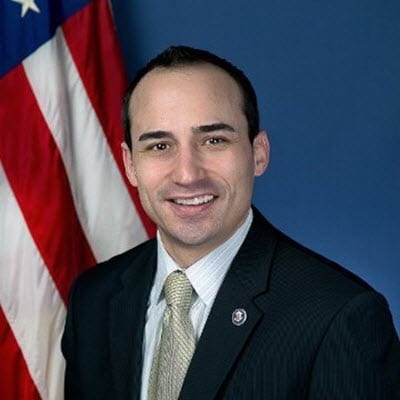
The future of mobility: Accelerate ahead The State Policy Road Map: Solutions for the Journey Ahead
07 February 2018
States that can help accelerate the future of mobility will likely see economic benefits as well as enhancements to their residents’ quality of life. Leaders should seek to share critical data to enable a more integrated transportation ecosystem, which is as much an information challenge as it is a transport challenge.
What is the issue?
The way people and goods travel from point A to point B is going through a sea change driven by a series of converging technological and social trends: the rapid growth of carsharing and ridesharing; the increasing viability of electric and alternative powertrains; new, lightweight materials; and the development of connected and autonomous vehicles. The result is the emergence of a new ecosystem of mobility that could offer faster, cheaper, cleaner, safer, more efficient, and more customized travel.
Learn more
View the full collection
Subscribe to receive Public Sector content
View the table of contents and create a custom PDF, or download the full collection
Sign up for the webcast
The stakes are high, and the implications of these shifts look to be wide-ranging. The extended auto industry alone touches nearly every facet of the American economy. It represents nearly $2 trillion in revenue—more than 10 percent of US GDP.1 The commercial trucking industry adds another $700 billion to that figure.2 Almost 7 million people worked in the US auto industry in 2016, with another 3.5 million employed as motor vehicle operators.3 And those figures, significant in themselves, don’t include the many additional jobs that rely on the provisioning of transportation, such as warehouse workers, public works employees, and those in delivery services. At the same time, traffic congestion wastes 7 billion hours a year for commuters.4 The world should find better ways to move people and goods.
State governments will play a role in shaping this new mobility landscape, regulating new technologies, and sharing critical data to enable a more integrated transportation ecosystem—which is as much an information challenge as it is a transport challenge. States that can help accelerate the future of mobility will likely see economic benefits as well as enhancements to their residents’ quality of life.
Issue by the numbers: Mobility
- The use of shared autonomous vehicles could cut the cost of single-person trips to as little as 31 cents per mile—about a third of the current cost.5
- The average car spends 95 percent of its time parked.6
- Car-sharing services are expected to encompass 23 million members globally by 2024.7
- Uber currently operates in more than 633 cities worldwide.8
- Traffic jams cost the US economy about $160 billion annually. 9
- On average, US drivers spend 17 hours per year searching for parking, at a cost of $345 per driver in wasted time, fuel, and emissions.10
How can state leadership tackle the issue?
Treat existing mobility options as one big ecosystem
 Read more about the future of mobility in Deloitte’s report The future of mobility. |
Public policy should focus on getting travelers from point A to point B efficiently, using any and all resources available—private cars, shared cars, ridesharing, bike sharing, and various modes of public transportation. Through public-private partnerships, governments can foster development of multimodal trip planning services, along with payment systems that let a traveler cover all the costs of a trip—bus and subway fare, parking, tolls, bike rentals, or whatever applies—through a single transaction.
Also, and fundamentally, states should explore creating a digital backbone for the mobility ecosystem: a comprehensive, interoperable system that transcends existing infrastructure, drives standardization and interoperability, enables value creation by key parties, and cultivates technological advancements. Such an integrated mobility platform could bring together physical infrastructure (roads, rails), modes of transport (cars, public transit, ridesharing, bike sharing), and transportation service providers (aggregators, public transport systems) and create greater throughput and optimization system-wide through market-clearing mechanisms. Such a system could not only enable “mobility as a service” (MaaS), but it could also allow visibility into and dynamic balancing of mobility supply and demand.
There should also be a thoughtful integration of physical infrastructure that facilitates transfer between transportation services. Examples include bus and subway interchanges, or bike and carsharing spaces at stations. Transportation planners should think through how the various modes link up, and states should particularly consider their role as a convener of various participants to promote greater integration.
Create conditions for smart mobility innovation
 Read more about enabling seamless multimodal mobility at The rise of mobility as a service. |
State governments can help set the stage for autonomous vehicles and MaaS by considering collaboration and public-private partnerships, as well as by encouraging open architecture technology standards. Governments can help define the vision and set the metrics by which success in mobility is measured.
Governments also can encourage investment in new programs. The US Department of Transportation (DOT) launched the Smart Cities Challenge, in which 78 cities submitted plans for intermodal innovations.11 The goal of the challenge was to encourage cities to think creatively about the future and to experiment with new mobility alternatives, with the $40 million federal contribution ultimately awarded to the city of Columbus, Ohio.12 Off the back of the challenge, states such as Nevada, Michigan, Pennsylvania, and Florida are now developing their own pilot programs.13
Protect the public interest
Governments should play an important role in ensuring that the new transportation environment doesn’t compromise safety or security. Autonomous vehicles may be a hot topic, but in creating integrated mobility platforms, governments should also address more prosaic issues around vehicle driving, service provision, consumer protection, data protection, liability, and equal access. Finding the regulatory sweet spot could be key. Too much regulation and the private sector may find it difficult to innovate or participate; too little regulation and the public interest might not be served.
Revisit and refine often
Because of the speed with which the technologies are advancing, a once-and-done approach to rulemaking may be ill-suited to the future of mobility. Instead, governments should review and refresh regulations frequently, with an emphasis on outcomes rather than only process or product. This can become especially important as policies evolve from high-level guidance to increasingly detailed—and binding—rules.
Explore creative financing options
Could MaaS, cost sharing, or other approaches allow state agencies to introduce new technologies without requiring a huge upfront investment? In some cases, private sector players eager to create viable in-market proof points might be willing to provide technology or services at reduced cost. Are there ways to make better use of purchased assets? For example, could a ridesharing service for state employees be created rather than assigning cars to individuals? What about setting up charging stations for state-owned electric vehicles and then letting members of the public pay to use them?
You don’t need to look too far for inspiration
Japan’s seamless transportation payments system
JR-East, one of Japan’s largest railway companies, introduced a rechargeable, contactless farecard in 2001. In 2004, NTT DOCOMO, a Japanese mobile phone provider, created the “wallet mobile,” which served as electronic money, member card, credit card, and a ticketing mechanism for air travel and events. In 2006, the two companies joined together to launch Mobile Suica, moving payments from smart cards to cellphones.14 Since then, they have built an extensive ecosystem of transportation operators, retailers, and service providers, and attained interoperability across most of the country’s transportation systems. Japan aims to extend the interoperability of the Suica card across all train lines nationwide in time for the Tokyo Olympics in 2020.15
Contra Costa County’s carpooling app
In Contra Costa County, California, the Contra Costa Transportation Authority (CCTA) has partnered with Scoop Technologies to develop an app that encourages carpooling. The app allows users to find rides, generate driving directions, and make payments. CCTA will pay commuters $2 each way each time they find a ride through the system instead of using their own cars.16





